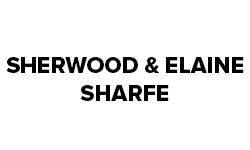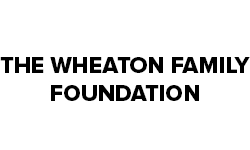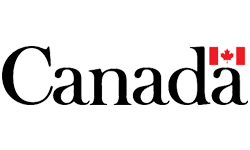Part C
Inquiry Resources
- Canadian Charter of Rights and Freedoms: http://www.pch.gc.ca/eng/1355260548180/1355260638531
- Democracy Watch
- Federation of Saskatchewan Indian Nations: http://www.fsin.com
- Ideology and Decision Making Unit Plan (Elgin Wyatt, STF Website)
- Introduction to Ideologies – https://www.youtube.com/watch?v=SWckfC3j94I
- Introduction to Ideologies, Lesson 2 Individualism vs. Collectivism –
- Introduction to Ideologies, Lesson 3 Enlightenment Philosophers – https://www.youtube.com/watch?v=66MqNv008lY
- https://www.lib.sfu.ca/about/initiatives/collaborations/multicultural-canada
- www.RationalRevolution.net
- Redefining the Political Spectrum
- Saskatchewan Human Rights Commission: https://saskatchewanhumanrights.ca/your-rights/saskatchewan-human-rights-code/
- Student Vote
- Activity 3.5, Saskatchewan Social Studies 10 Curriculum (1994)
- Activity 3.6, Saskatchewan Social Studies 20 Curriculum (1995)
- PoliticalCompass.org
- Parliament of Canada Website
- WilliamsSocial (videos intended to support Alberta Socials Studies program) – https://www.youtube.com/user/WilliamsSocial
- WilliamsSocial – https://www.youtube.com/playlist?list=UUeoDrN4bz0Xj5Arv3dv1djw
- www.spartucus-educational.com (link no longer active)
- Fighting Antisemitism Together (FAST): http://www.fightingantisemitism.ca/
- Voices into Action: http://www.voicesintoaction.ca
Cross Curricular Connections
“If students are to become lifelong learners, develop a sense of self and connection to others, and become engaged citizens and achieve the Cross-curricular Competencies and the outcomes for English language arts, students require meaningful, authentic contexts for learning. Students need many opportunities to explore questions and concerns about themselves and about the world.”
The Concentus Citizenship Education Resources provide teachers with a framework of inquires with which to further students’ explorations of their roles and responsibilities as Canadian citizens, in authentic contexts. These inquiries are directly connected to Social Sciences (History, Native Studies, Social Studies) foundational outcomes and the broad goals of learning identified above. Specific connections to English Language Arts and Treaty Education are identified and suggested as starting points for teachers.
English Language Arts B10 (Unit 1):
Contexts/Themes
Equity and Ethics (Who and What is Right?; Empowerment; Degrees of Responsibility; Rights and Responsibilities; Justice and Fairness)
Essential Questions
- What are some of the factors that create inequalities? How have inequalities shaped our world?
- What is my role and responsibility in addressing inequalities?
- What is the relationship between rights and responsibilities?
- Who decides what is right? Why should we do the right thing? How can I act on the right thing?
- How does one become an ethical person?
English Language Arts B10: (Unit 2):
Contexts/Themes
The World Around and Within Us (Perspectives; Diversity of Being; The Natural and the Constructed Worlds; Individuals and Communities; Stewardship)
Essential Questions
- What are our relationships and responsibilities to the communities and environments of which we are a part? How are we related to and responsible for natural and constructed environments? For technology?
- Why is it important to be in touch with the world?
- The world is a difficult text: how can we read it and respond to it critically?
- How can I have a positive influence upon my world?
- How must we show respect and care for the community of life?
Treaty Education
- TR10: Examine contemporary economic implications of Treaties for all the people of Saskatchewan and other Canadian jurisdictions.
- SI10: Analyze the spirit and intent of Treaties and investigate the extent to which they have been fulfilled.
- HC10: Investigate opportunities and challenges faced by First Nations and the Government of Canada in relation to governance issues.
- TPP10: Investigate issues related to resource development and Treaties.
Further Investigation Suggestions
- Have the students form groups and choose an ideology they would like to study. Create a political party and develop a political campaign based on a specific ideology. Include:
- the party’s perspective on a specific set of issues, link to specific ideology
- the campaign’s media strategy,
- a strategy to dispel or downplay other ideological campaigns,
- an analysis of the party’s target voters
- a reflection of the process
- a prediction of how the campaign will play out
- the strengths and weaknesses of the campaign’s approach and positions,
- potential problems the party will face, etc.
- the worldview reflected in the ideology
- Compare the conflict in the French Revolution to the struggle between First Nations, Métis and non-First Nations in the British North American Act.
- Examine the concepts of privilege and marginalization in society and the struggle to re-organize the structure of society
- Compare the similarities and differences in the process and the result.
- Why did one succeed and one fail?
- Have students identify their beliefs on different social, political and economic issues (based on a range of ideological options), and use these beliefs to help the students narrow down their ideological worldview.
- Identify where they fall on their ideological spectrum, tell why, and give evidence of their position according to their activities they belong to and behaviours they demonstrate.
Ideology in Governing Bodies
What ideology is evident in the current government? Provincially, Federally
Identify:
- Role of government
- Priorities for society
- Policies to address marginalized people
- Placement on the political and economic ideological spectrum
Glossary
“Text from Vocabulary.com, Copyright ©1998-2016 Thinkmap, Inc. All rights reserved.”
Anarchism
Best government is no government
Everything about governments is repressive and so governments should be abolished
Absolutism
Single rules has control over every aspect of government
Includes titles of chieftain, king, shah, pharaoh, emperor
Strong sense of order, clear cut law of nature, wisdom of traditional values and institutions
Liberalism
Individual takes priority over society
Individuals have the right to choose
Equality – no person morally or politically superior to others
Rationalism – people capable of rational thought
Progress – traditions kept only if they have value
Free market – creates wealth,
Capitalism
An economic system featuring the private ownership of business wealth and the free and unfettered operation of trade markets.
Capital is usually understood to be money that is put into a business, accumulated by a business, or used in some way to produce more money. In a capitalist economy, the capital is owned by private individuals, as opposed to the government or state (as in socialism or communism). Another important aspect of capitalism is the “free market,” where in theory natural competition always leads to innovation and price controls.
An economic system based on private ownership of capital
Communism
At the opposite end of the spectrum from “capitalism,” communism is an economic theory favoring a classless society and the abolition of private property.
Communism derives from the French commun (common). Ideally, according to communism, society shares all property in common, everyone shares the burden of labor, and everyone shares the profits of that labor. Or, as the German philosopher Karl Marx wrote, “From each according to his ability, to each according to his need.” As a system of government, communism is often closer to a form of socialism, in which the state owns and operates industry on behalf of the people.
A political theory favouring collectivism in a classless society
A form of socialism that abolishes private ownership
Conservatism
Reaction to liberalism, desire to regain stability
Stability – change should be gradual
Concreteness – Liberalism too abstract not realistic for the way people live their lives everyday
Human fallibility – liberalism overestimates the strength of humans
Unique circumstances – no universal answer to society’s problems
Socialism
Response to Industrial Revolution
Collectivism: human being social by nature and should be reflected in society
Public ownership – society not individuals should own the property
Central economic planning – government plans the economy, no free market
Economic equality: all citizens have roughly the same level of prosperity
Communism and democratic socialism fall under these
© 2024 Concentus Citizenship Education Foundation Inc. All Rights Reserved.









